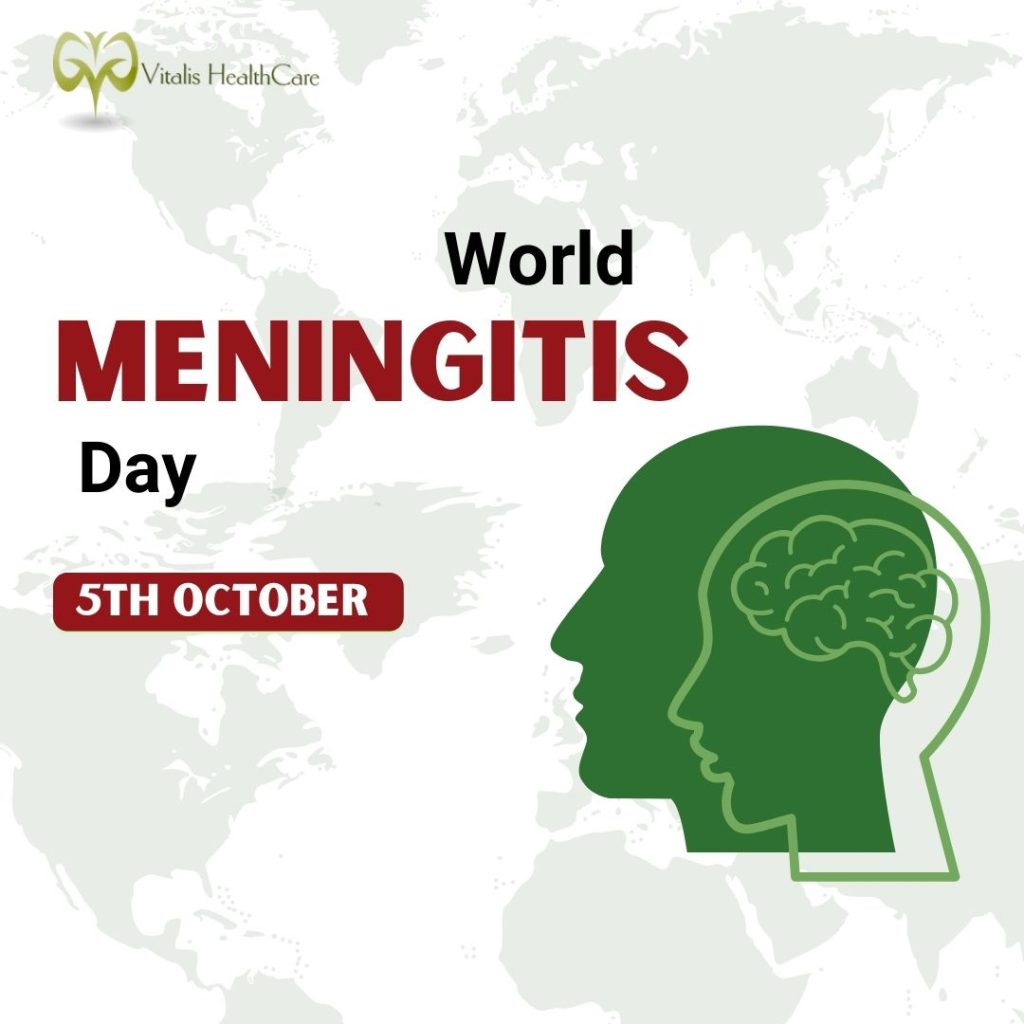Meningitis is a serious infection of the meninges, the membranes covering the brain and spinal cord. Meningitis can be caused by different pathogens including bacteria, fungi or viruses. Bacterial meningitis is the most common dangerous type of meningitis which can be fatal within 24 hours, leading to more than 50% of the deaths from meningitis globally. Meningitis affects people of all ages, and can be spread from person to person through respiratory droplets or throat secretions.
Symptoms of Meningitis
The signs and symptoms of meningitis vary depending on the cause, disease course, brain involvement and system complications. Some common symptoms of meningitis includes;
- Neck stiffness
- Headaches
- Nausea and vomiting
- Fever
- Altered mental status etc.
Less frequent symptoms includes:
- Seizures
- Coma
- Neurological defects e.g hearing and loss, cognitive impairment
- Weakness of the limbs etc.
The Long-term Effects of Meningitis
People who have lived through meningitis often have health care needs requiring long-term medical treatment or attention. Some of these long-term effects may include;
- Hearing Loss: Hearing loss is one of the most common long-term effects of bacterial meningitis. According to research, up to 30% of bacterial meningitis survivors experience some degree of hearing loss. This can occur due to damage to the auditory nerve or the parts of the brain responsible for hearing. In some cases, hearing can be restored with the use of hearing aids or cochlear implants, but in others, the damage maay be permanent. Early intervention with hearing tests post-recovery can help mitigate the impact on communication.
- Fatigue and Reduced Stamina: Many survivors report ongoing fatigue, even months or years after the initial infection. This fatigue can be both physical and mental, making it challenging to return to normal activities, including work or school. In severe cases, individuals may need to modify their daily routines to conserve energy and accommodate reduced stamina.
- Psychological Effects: Survivors of meningitis may experience psychological impacts, including anxiety, depression, and post-traumatic stress disorder (PTSD). The trauma of surviving a life-threatening illness, combined with any long-term physical disabilities, can take a toll on one’s mental health.
- Vision Problems: Some survivors may experience visual disturbances, such as blurred vision, sensitivity to light, or even blindness in severe cases. This is usually a result of pressure on the brain affecting the optic nerve. For others, eye strain and difficulty focusing can persist long after the infection has cleared.
- Amputation and Physical Disability: In rare cases, bacterial meningitis can lead to septicemia (blood poisoning), which can cause tissue death, resulting in the need for amputations of fingers, toes, or even limbs. Those who undergo amputations face a lifelong journey of physical rehabilitation and the emotional toll of adjusting to life with a disability.
Coping with the Aftermath
Living with the long-term effects of meningitis can be overwhelming, but with the right support and care, survivors can lead fulfilling lives. Here are a few coping strategies:
- Rehabilitation and Therapy: Rehabilitation is essential for those experiencing physical and cognitive impairments. Occupational and physical therapy can help survivors regain strength and improve motor skills. Speech therapy is often necessary for those who have lost their ability to communicate effectively.
- Mental Health Support: It’s crucial for meningitis survivors to seek mental health support. Therapy and support groups can help them process their trauma and cope with the psychological aftermath. Family members and caregivers should also be involved in this process to provide a strong support system.
- Medication and Medical Follow-Up: Ongoing medical care is often necessary for managing chronic symptoms, such as seizures or pain. Regular check-ups with healthcare providers ensure that complications are monitored and managed effectively.
Meningitis can leave a lasting impact long after the infection has cleared. For survivors, the journey to recovery can be lengthy, and in many cases, lifelong. While the long-term effects of meningitis can be daunting, advances in medical treatment and rehabilitation have improved recovery for many survivors. They can now adapt to the changes in their lives and continue to lead meaningful and productive lives.
At Vitalis Healthcare, we provide compassionate home healthcare services to assist senior individuals living with or recovering from chronic illnesses or conditions. Our team of registered nurses and experienced caregivers are constantly and efficiently trained to provide the best quality care to our patients.
If you or your loved one is in need of professional home care services, contact us today!
Phone Number: 240.716.6874
Email: info@vitalishealthcare.com
Location: We provide our services in every county in the State of Maryland, United States of America.
Office Address: 8757 Georgia Avenue Suite 440 Silver Spring, MD 20910


